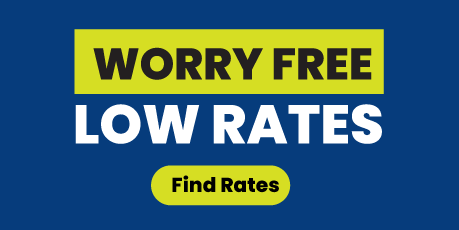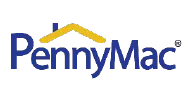Super Jumbo Mortgage Loans

What are Super Jumbo Mortgage Loans?
Super Jumbo Mortgage Loans may be just what they will need when it comes to a borrower purchasing or refinancing a high-priced property.
These high-end residential properties are typically over $1,000,000 for the purchase price.
These loans are designed for individuals or families who borrow over $1 million to finance their dream home.
The loans are custom-tailored loan programs for each individual client. The clients typically have complex finances.
The borrower may own companies, stocks, bonds, real estate, and other assets.
Super jumbo loans are not regulated nor insured by Fannie Mae and Freddie Mac.
Mortgage lenders independently and internally define their own Super Jumbo loan program criteria.
The last Super jumbo mortgages: mortgage lenders will most likely hold onto the super jumbo loans themselves.
This is why they are more conservative when underwriting these super jumbo loans.
The property may be a single-family residential investment property or a primary residence that is a luxury home.
This article will explore what Super Jumbo Mortgage Loans are, the types available, their benefits, and how to qualify.
What are Super Jumbo Mortgage Loans?
Super Jumbo Mortgage Loans are loans that exceed the amount of a standard Jumbo loan.
To be considered a Super Jumbo Mortgage Loan, the borrowing amount for one loan should be more than $1 million.
These loans are typically used as purchase loans for home purchases or financing luxury homes or investment properties with a high value.
Super Jumbo Mortgage Loans generally have more stringent criteria than traditional home loans, such as high credit scores, low debt-to-income ratios, and a sizeable down payment.
Types of Super Jumbo Mortgage Loans
Two primary types of Super Jumbo Mortgage Loans exist Fixed-Rate and Adjustable-Rate Mortgages.
As the name suggests, Fixed-Rate Mortgages come with a fixed interest rate for the loan term, ranging from ten to thirty years.
On the other hand, Adjustable-Rate Mortgages have fluctuating interest rates that change according to market conditions.
Benefits of Super Jumbo Mortgage Loans
One of the main advantages of Super Jumbo Mortgage Loans is that they can finance dream properties with high values.
Lower Down Payment:
Super Jumbo Mortgage Loans have lower down payment requirements than conventional loans.
High Loan Limits:
Super Jumbo Mortgage Loans can finance properties with market values higher than the traditional loan limit of $548,250.
Tax Deductible:
Interest expenses on Super Jumbo Mortgage Loans are tax-deductible, making it easier to save money.
How to Qualify for Super Jumbo Mortgage Loans?
High Credit Score:
Lenders must see that you have a credit score of 700 or higher.
Low Debt-to-Income Ratio:
Lenders will look at the borrower's debt-to-income ratio and expect it to be below 43%.
Large Down Payment:
The borrower will need a significant down payment to show their creditworthiness.
Reserve Requirements:
The borrower must have enough reserves to pay several months of mortgage payments.
Conclusion
Super Jumbo Mortgage Loans can be beneficial, especially for purchasing high-value or investment properties.
While qualifying for these loans can be challenging and rigorous, their benefits outweigh the downsides.
The borrower must work closely with the mortgage lender to meet their qualifications.
The super jumbo loan may require stricter qualifications and closely inspected underwriting.
The borrower must research the different qualifications, fees, and limits before choosing a lender for all their mortgage needs.
By following the tips mentioned above, borrwers can position themselves to get the best Super Jumbo Mortgage Loan available.
If you're considering a Super Jumbo Mortgage Loan, speak to a reputable lender and explore all your loan options before deciding.
Additional Terms and Definitions of Mortgage Closing Costs:
Closing costs are processing fees the borrower must pay their lender. Lenders charge these fees monthly in exchange for creating their loans.
Closing costs cover your home appraisal and searches on the borrower's home's title.
The specific closing costs the borrower will need to pay to depend on loan amounts, the type of loan they take, and where they live.
When obtaining a jumbo and super jumbo loan, borrowers should be aware of the various closing costs associated with the process.
These costs include upfront mortgage insurance premiums, other monthly payments, mortgage payments, and fees, property taxes, interest payments, credit report fees, rate mortgages, and more.
The average closing costs for a full jumbo and super jumbo loan can range from 2% of a single loan amount to 5% of the total loan amount.
However, borrowers may reduce these costs by purchasing discount points, which allow them to pay a portion of their total interest rate upfront.
In addition to the costs mentioned above, borrowers must also consider other fees and expenses such as homeowners insurance, title insurance costs, underwriting fee, and owner's title insurance.
The loan estimate provided by the lender should estimate the estimated closing costs associated with the loan.
The closing date will be agreed upon by both the borrower and the lender. The borrower must pay property taxes and other closing costs by this date.
The borrower's real estate agent may also help borrowers navigate the closing process and may be able to negotiate some of the closing costs.
One discount point is equivalent to 1% of the total loan amount, and the discount points can help cover closing costs.
It is essential for borrowers to carefully review their loan estimate and ask questions about any fees or costs that they do not understand.
With proper planning and budgeting, borrowers may manage the various expenses of obtaining a jumbo-rate term loan.
The borrower's down payment isn't the only thing they must to bring to the closing table when closing on a home.
Closing costs are expenses the borrower pays to their lender in exchange for loan services.
Many first-time home buyers need to pay more attention to how much they'll need to pay in closing costs.
Some may need to learn there are ways to lower how much you'll pay.
Understanding closing costs can be challenging.
We'll give borrowers an overview of everything they will need to know about closing costs before they finalize their loan.
Closing costs cover your home appraisal and searches on your home's title.
The specific closing costs the borrower will need to pay depend on the loan type amount of loan they take, and where they live.
Attorney Fees
Some homebuyers will use an attorney to review their paperwork.
This helps ensure that everything is in order. In some states, an attorney must legally close a home. Attorney fees usually only amount to a few hundred dollars.
What Is an Escrow Account?
Escrow accounts are typically arranged for real estate transactions .An Escrow Account is a legal arrangement in which the title company will hold the money in an escrow account.
The money will be taken from the escrow accounts and added to the closing costs as monies paid.
Local Government Fees:
Government recording charges are fees assessed by state and local government agencies for legally recording borrowers deed, mortgage, and documents related to a borrower's home loan. The fee covers all of the government fees and taxes.
Private mortgage insurance (PMI):
What is the purpose of PMI?
PMI is a type of insurance a borrower might be required to pay for if they have a conventional mortgage.
PMI protects the lender, not the borrower, if they stop making payments on their loan.
How much is PMI?
The charge for PMI premium rates is 0.58 percent on loan amounts up to 1.86 percent of the loan's original amount.
Will PMI ever drop off of loan?
Yes, when the first-rate mortgage loan to value reaches 78% to 80$.
What is Title Insurance?
Title insurance is a protection that is a contractual obligation and protects against losses when a title to a property is not free and clear of defects.
Liens:
The right to keep possession of another person's property until a debt owed by that person is discharged and paid.
Encumbrances:
Encumbrances affect title, meaning that the owner's rights to the property are limited in some way. Those limitations sometimes continue even if the property is purchased by someone else.
Please call us at 1-866-713-9292 or apply online.







